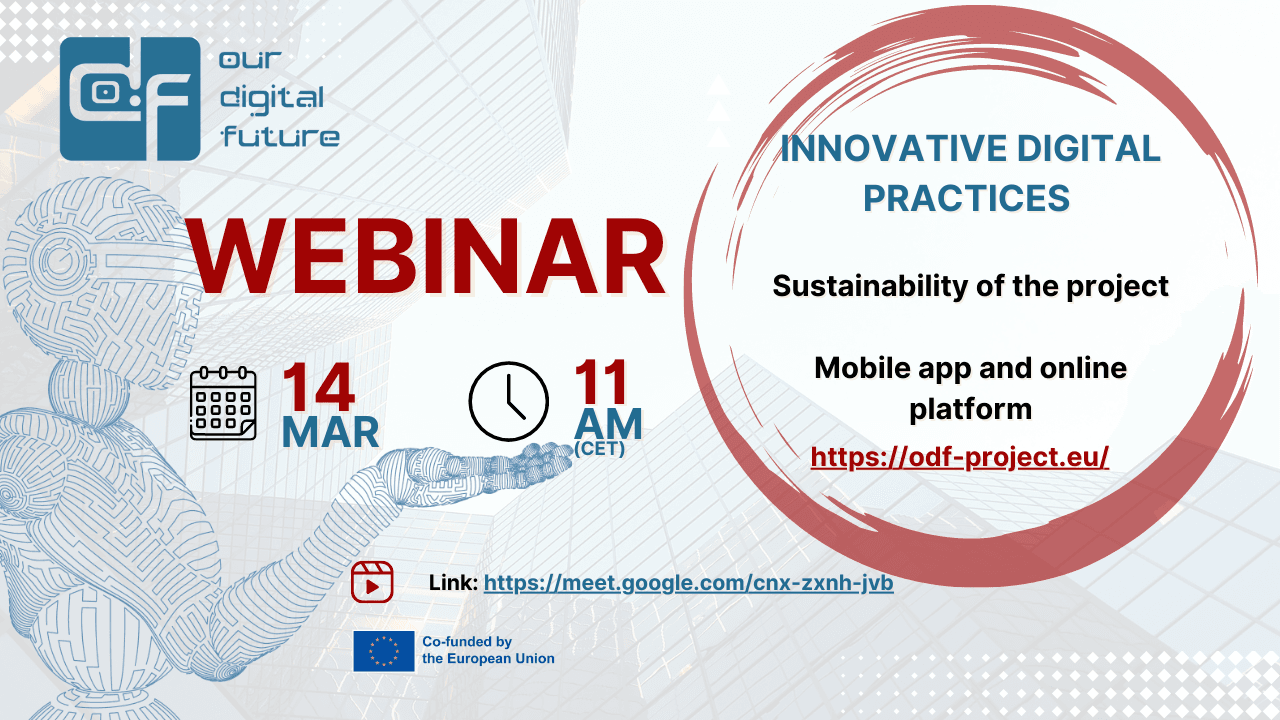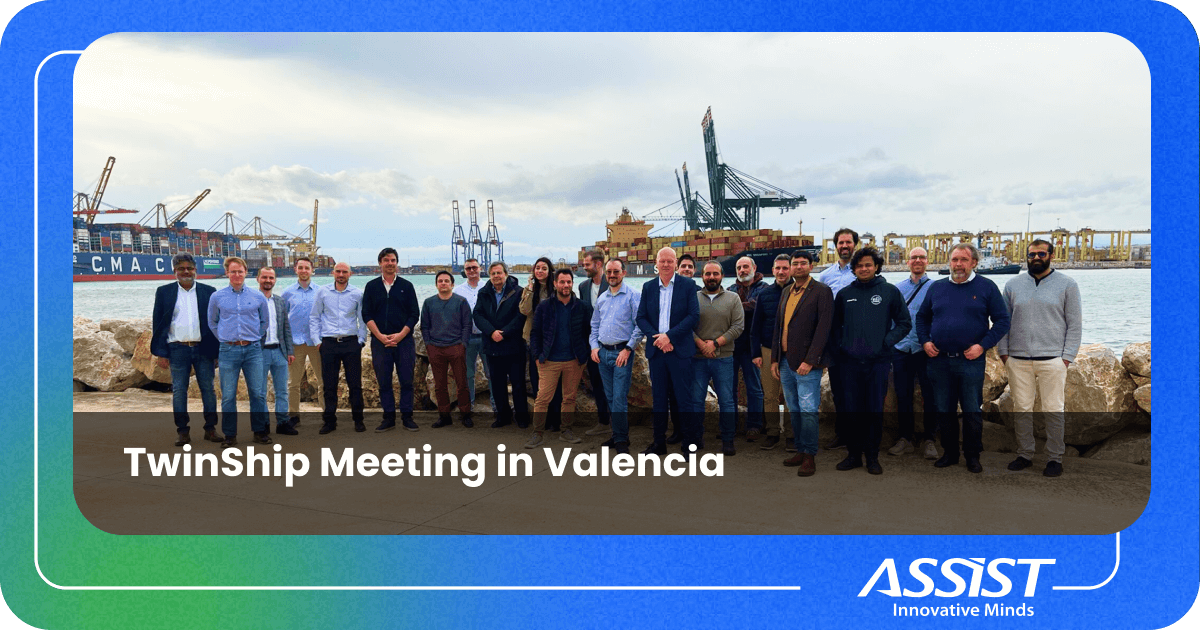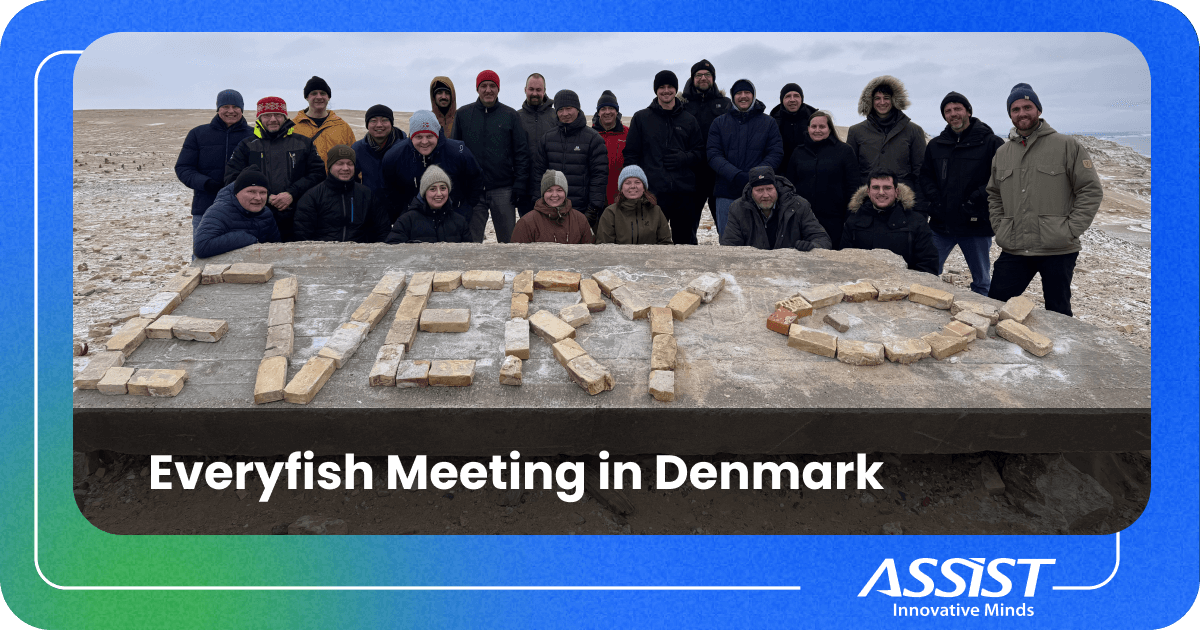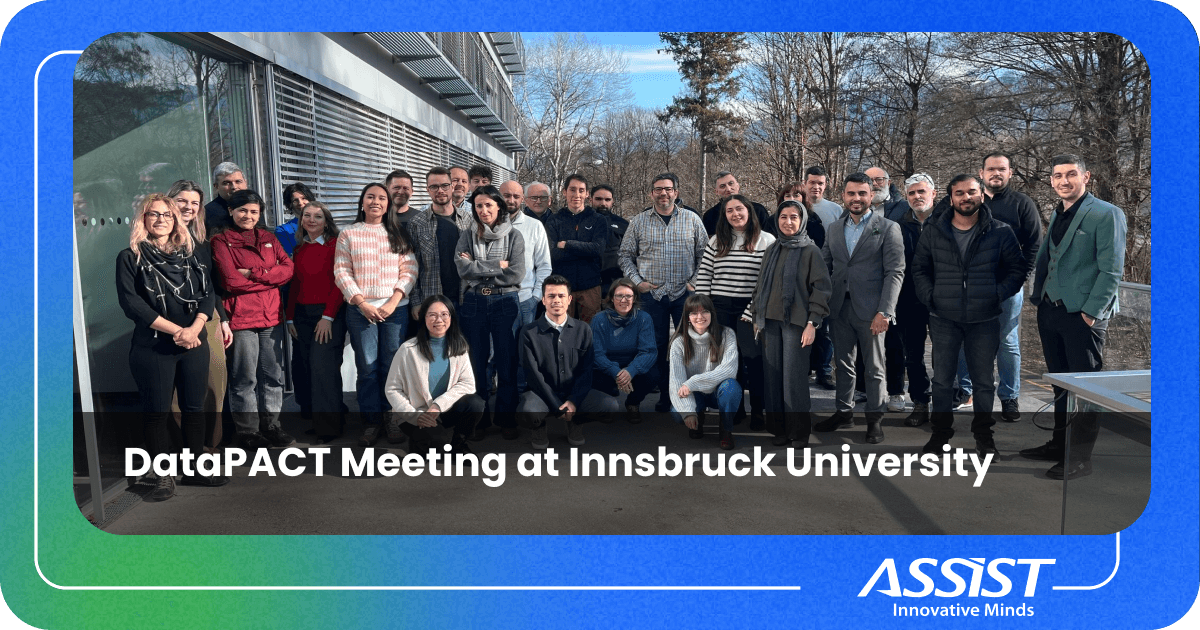The 4th Transnational Partners Meeting of the ODF project
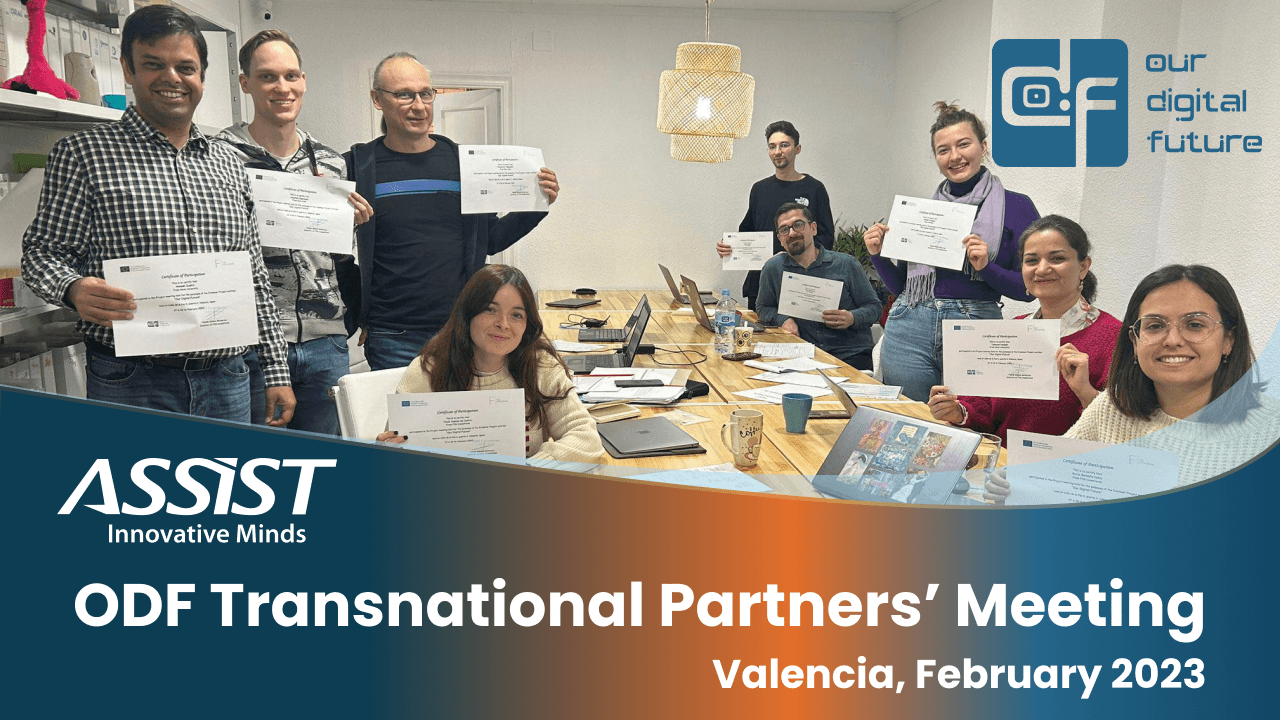
ASSIST Software is about to finalize yet another successful Erasmus+ project, developed in collaboration with partners from Poland, Spain, Portugal, and Greece.
The ODF consortium had one final face-to-face meeting in the vibrant city of Valencia on the 27th and 28th of February 2023, expertly hosted by FyG Consultores. The purpose of the meeting was two-fold: firstly, to assess the intellectual outputs produced by the project and establish project dissemination activities that would spread the knowledge generated through this collaboration, and secondly, to devise a comprehensive sustainability plan.
We remind you that the Our Digital Future project has three Intellectual Outputs (IOs) aimed at creating resources for vocational education and training (VET) career advisors to help young people explore emerging digital job opportunities across Europe. The project has explored eight technologies: Alternative Energy Consultancy, 3D Printing, Food Technology, Robotics, Cybersecurity, Virtual Reality design, Blockchain Technologies, and Artificial Intelligence development, providing valuable insights into the specificities and the requirements of each sector in terms of education and skills.
The meeting served as an opportunity to discuss and resolve various administrative issues that needed attention. Also, the consortium reviewed and discussed the remaining tasks that need to be accomplished. This collaborative approach helped to ensure that all outstanding issues were addressed effectively, allowing the project to move forward efficiently towards its completion.
The consortium has scheduled a second webinar on March 14th to showcase the web and mobile apps implemented by ASSIST and to outline plans for ensuring the project's sustainability beyond its current lifespan. This webinar offers an opportunity to highlight the practical applications of the apps and demonstrate how they can support the project's broader goals. Additionally, the consortium will discuss the strategic measures that will be put in place to ensure the project's long-term impact and success.
